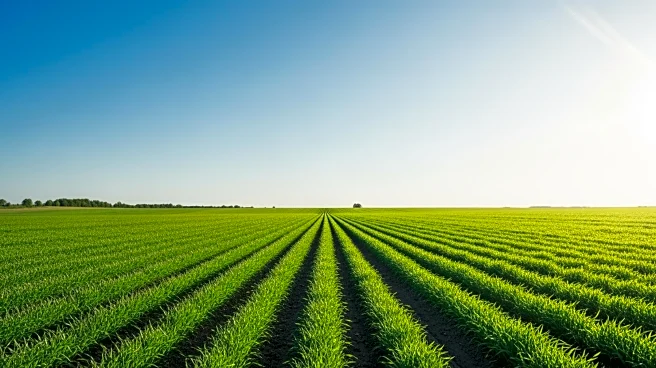What's Happening?
At COP30 in Belém, agriculture is being recognized as both a contributor to and a solution for climate change. The conference emphasizes the need for adaptation strategies and innovations to make agriculture more climate-resilient. FiBL, a research institute,
is actively participating by presenting findings on organic farming and agroecological approaches. These include humus formation for soil fertility, optimized fertiliser management, and agroforestry systems that enhance productivity and resilience. FiBL's research underscores the importance of integrating scientific findings into policy and practice to address the climate and food crises effectively.
Why It's Important?
Agriculture is a significant source of greenhouse gas emissions, yet it also holds potential for mitigating climate change through sustainable practices. COP30 provides a platform for global discussions on how to transform agriculture into a climate-resilient sector. By showcasing successful organic and agroecological strategies, FiBL aims to influence policy frameworks and encourage the adoption of sustainable farming practices worldwide. This approach not only addresses environmental challenges but also supports food security, making it crucial for global efforts to combat climate change.
What's Next?
FiBL will continue to present its research at COP30, advocating for the integration of organic and agroecological strategies into global agricultural policies. The institute's online event will highlight practical examples of successful climate adaptation in agriculture, potentially influencing future policy decisions. As the conference progresses, stakeholders from various sectors may collaborate to develop comprehensive strategies for sustainable agriculture, leveraging FiBL's findings to drive innovation and resilience in farming practices.
Beyond the Headlines
The emphasis on organic and agroecological approaches at COP30 reflects a growing recognition of the need for sustainable agricultural practices. These strategies not only reduce emissions but also enhance soil fertility and biodiversity, contributing to long-term environmental health. The conference may catalyze shifts in agricultural policy, encouraging governments and organizations to prioritize sustainability in farming. FiBL's participation highlights the role of research in shaping effective climate solutions, potentially leading to increased investment in sustainable agriculture.
















